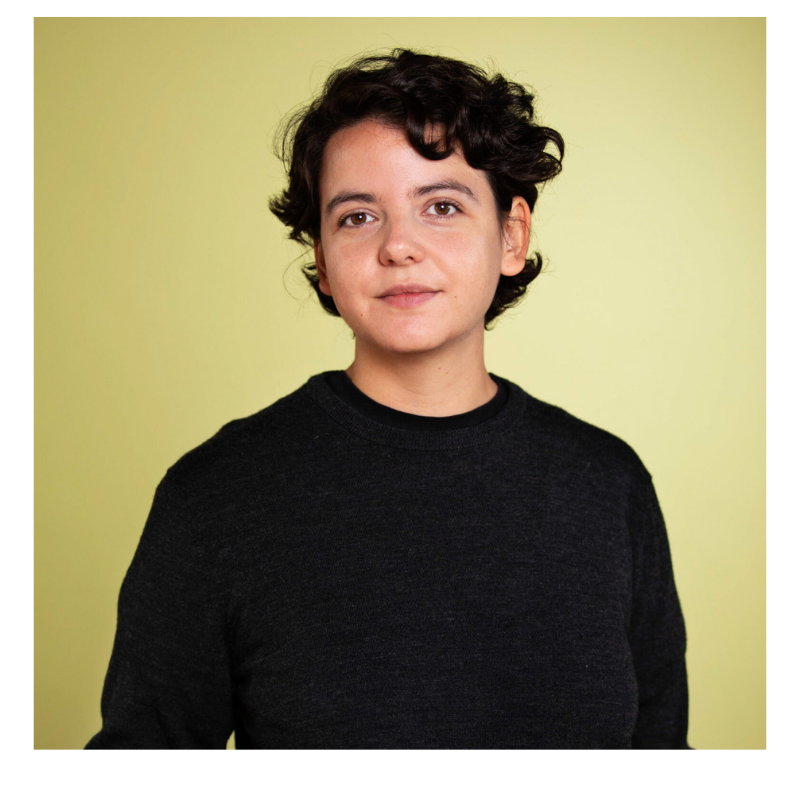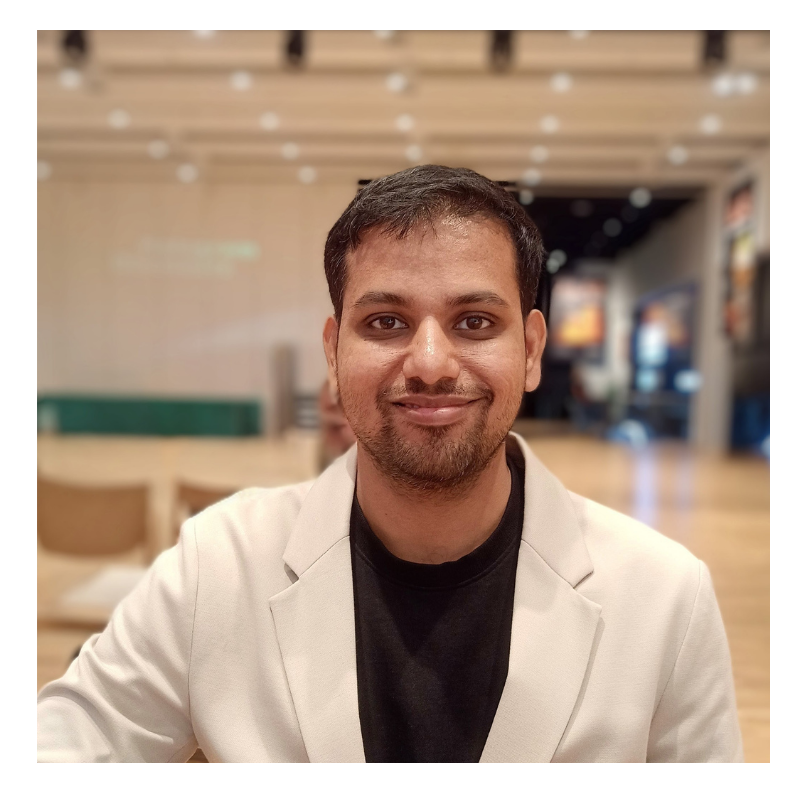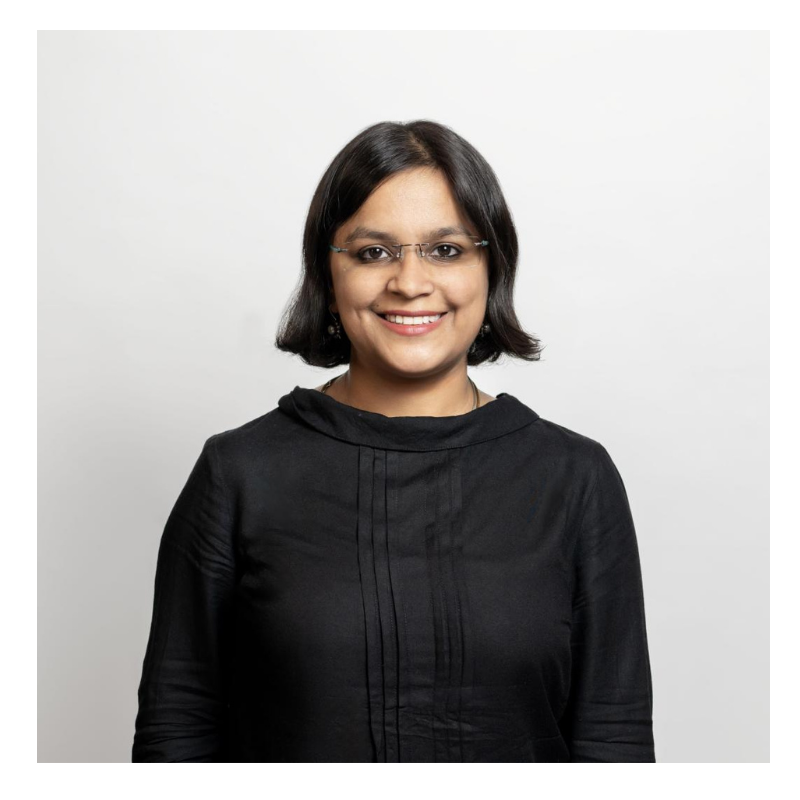Announcing the Global AI & Market Power Fellows
We’re pleased to announce eight Global AI & Market Power Fellowship teams that will spearhead investigations into market power dynamics in the current AI ecosystem and create a strong evidence base to design interventions in the public interest.
The fellows will study diverse yet complementary topics, including but not limited to investment strategies and dependencies in the value chain of AI start-ups, the use of automated trading platforms in Europe’s energy market, and the potential of open cloud computing.
The eight successful projects were selected from 201 applicants and will receive grants of up to $70,000.
AI & Market Power Fellows and their research topics:
- Margarida Silva – ‘Value chain of genAI startups’, $70,000
- Jim Thomas – ‘ The ‘Generative Biology’ Grab – Tech Titans Takeover the Bioeconomy ‘, $62,700
- Yung Au and Srujana Katta – ‘The political economy of military general-purpose AI systems’, $70,000
- Nicolas Eschenbaum – ‘Market Power and dependencies in the Market for Foundation Models: an Empirical Investigation’, $48,400
- Isha Suri, Shyam Krishnakumar and Titiksha Vashist – ‘Democratising AI Infrastructure with Open Cloud Compute’, $69,500
- Louis Boyd – Madsen, Gabriele Di Donfrancesco and Clément Pouré – ‘Mapping the uptake and effects of algorithmic trading in Europe’s energy market ‘, $53,095.80
- David Gray Widder – ‘Forecasting Cloud Capture: Tracking Cloud Giant “Investment” in AI Startups’, $65,000
- Friso Bostoen and Giorgio Monti – ‘Fair and Inclusive Markets for AI Training Data’, $40,480
You can read more about the fellows and their research below.
Billions are being poured into the AI industry, fueling hype around large-scale AI. But the benefits of AI are being inflated, and risks remain underexamined. Public interest watchdogs and competition experts warn that both capital and power are concentrated among a few corporate actors. These large firms dominate our digital infrastructures and risk increasing dependencies by AI startups, SMEs and governments on their services. The concern is that they are poised to have an increasingly tight chokehold on our economies in the future. Meanwhile, global financial institutions and venture capitalists are now beginning to ask whether generative AI is over-hyped. Some estimate that AI companies will need to generate $600bn in revenue to pay back their investors, raising questions about how they will do it.
The fellowship, bringing together top researchers and investigators, will closely examine market power dynamics in the current AI ecosystem and create a body of knowledge that will inform the work of regulators, competition authorities, legislators, civil society, start-ups and other businesses as they contend with market power dynamics in the complex ecosystem of large-scale AI.
This programme sits within the Fund’s wider strategy to catalyse new political thinking to drive the public interest agenda on AI. It will seed new ideas, engage fields such as climate, labour and industrial policy and grow strategic capacity in the field. AI & Market Power Fellows will add a deeper analysis on the political economy of AI and create opportunities for civil society ecosystem to explore market power dimension of AI.
The Fellowship is supported by the Open Society Foundations and administered by the Institute of International Education.
Contact & press inquiries: info@europeanaifund.org
Meet the AI & Market Power Fellows
Value chain of genAI startups
Margarida Silva
Belgium & The Netherlands; Global focus

Margarida Silva researches the political and economic power of Big Tech at the Centre for Research on Multinational Corporations (SOMO). She has published research on Amazon’s marketplace dominance in Europe, Big Tech’s monopolisation strategies and their pushback against the Digital Markets Act. Before joining SOMO she researched and campaigned against the political influence of Big Tech and other corporate sectors over EU policymaking at Corporate Europe Observatory.
This fellowship will be supported by Çağrı Çavuş, who has a background in digital competition law, and other SOMO colleagues with expertise in researching complex corporate structures”.
This research will apply follow the money investigative techniques to the value chain of generative AI startups. The intention is to identify chokepoints created by Big Tech firms and the potential and actual impacts of their involvement. Expanding beyond the traditional competition policy framework, the investigation will pay special attention to the hidden role of labour and the expected business models for AI. The expectation is that the research will bridge the competition, labour and digital rights communities.
The ‘Generative Biology’ Grab – Tech Titans Takeover the Bioeconomy
Jim Thomas
Canada and the USA

Jim Thomas of scanthehorizon.org is an international civil society researcher and advocate addressing new technologies, biodiversity, food systems and corporate power. He has three decades of experience tracking emerging technologies and international governance processes while supporting movements to understand tech impacts and craft response strategies.
“Generative Biology” describes the application of generative AI tools to the genetic engineering of biology. Rather than instructing a prompt to assemble texts or image, generative AI models promise to ‘generate’ novel DNA, RNA, Proteins and lifeforms for industrial or military uses. AI titans (including Alphabet, Amazon, Microsoft and Nvidia) are building out generative biology models. They hope to transform bioeconomy markets of food, pharma and biomaterials while also projecting an image of social usefulness beyond chatbots for Generative AI. Building on a commissioned literature review, this project will survey corporate actors developing ‘generative biology’ platforms, explore which markets are being targeted, ownership claims being made and alliances being forged to command more of the bioeconomy. The project will also develop a primer for policy action on the use of AI for genetic engineering.
Market Power and dependencies in the Market for Foundation Models: an Empirical Investigation
Nicolas Eschenbaum
Switzerland

Nicolas Eschenbaum is a researcher and advisor for competition economics and digital markets. He studies how AI and digitisation affects markets and how digital technologies can be regulated in order to promote competition and innovation.
This research project conducts an empirical analysis of market shares and dependencies of AI foundation models. By examining public software repositories, the study aims to quantify which AI platforms and services are most widely used by developers. The findings are analysed in the context of AI providers’ monetization strategies and practical experiences of developers to provide a data-driven view of the market and inform discussions on competition and antitrust concerns in this rapidly evolving software ecosystem.
Democratising AI Infrastructure with Open Cloud Compute
Isha Suri, Shyam Krishnakumar and Titiksha Vashist
India

Isha Suri is a Research Lead at the Centre for Internet and Society, India. Her research interests include competition policy, digital infrastructure, and platform governance. She is an Electrical Engineer and also holds a post-graduate degree in law from the Indian Institute of Technology, Kharagpur.

Shyam Krishnakumar is a Co-Founder of The Pranava Institute where he engages with key regulatory questions around emerging technology in the Indian context. At Pranava, Shyam leads interdisciplinary research on two focus areas: AI Ethics and Governance, and Governing Digital Public Infrastructures, interfacing with a wide range of stakeholders.

Titiksha Vashist is a Co-founder of The Pranava Institute. Her work focuses on emerging technology and its socio-political implications in India. She drives research projects at the intersection of technology, ethics, design, and policy. Titiksha is also an inaugural Maitri Fellow of the Center for Australia India Relations (CAIR), hosted as a researcher at the Tech Policy Design Centre, Australian National University.
While popular narrative around AI development suggests disruption of the competitive landscape through open models and frameworks, evidence suggests that it has entrenched market concentration with only a handful of corporations owning the compute infrastructure and technical capabilities to develop and deploy AI at scale.
Consequently, most companies are becoming increasingly dependent on these hyperscalers along with their bundled services. These hyperscalers often abuse their market dominance through customer lock-ins using committed spend discounts, tying and bundling, and higher egress fees. Through a mixed methods study we will explore if a Digital Public Infrastructure (DPI) based approach to open cloud computing for AI, aided by enabling policy and technical frameworks can emerge as a viable alternative to existing market concentration in compute infrastructure. We will identify principles of ‘openness’, including interoperability and decentralization, that are essential to an open cloud infrastructure initiative and explore ways to ensure such initiatives remain immune from dominance by large private players. We will also propose regulatory frameworks through which relevant regulators can reverse such gatekeeping efforts. The study will aim to provide actionable evidence-based recommendations to inform India’s approach to AI regulation and development including suitable frameworks for DPI governance.
Mapping the uptake and effects of algorithmic trading in Europe’s energy market
Louis Boyd – Madsen, Gabriele Di Donfrancesco and Clément Pouré
Belgium, France, Italy, Denmark, Spain & the UK

Louis Boyd – Madsen is an investigative journalist focused on the socio-economic impacts of the tech, climate, and finance intersection. His previous work as a university lecturer at the Institute for American Universities examined the political economy of nationalism and globalisation.

Gabriele Di Donfrancesco is an investigative journalist focused on utilities, climate, and social issues, often encompassing the impact of new technologies. Bylines on the Bulletin of the Atomic Scientists, Jacobin, and RomaToday, among others.

Clément Pouré is an investigative journalist reporting on state surveillance and technology at work. His investigations have been published in Mediapart, Le Monde and the international French-speaking press.
Participants in Europe’s wholesale energy market increasingly use machine learning and automation to optimise their trading and navigate an increasingly fast-paced and volatile system. This project examines the power and potential pitfalls of this transformation, mapping out key players, regulatory structures, and empirical insights from across Europe’s bidding zones.
Forecasting Cloud Capture: Tracking Cloud Giant “Investment” in AI Startups
David Gray Widder
The USA

David Gray Widder (he/him) studies epistemic and political economic power in AI production. He is a postdoctoral fellow at Cornell Tech, and earned his PhD from Carnegie Mellon University.
Cloud giants are building their empires. Google, Microsoft, and Amazon seek to capture more of the AI cloud market, but what are their tools and strategies for empire building? How might we anticipate the state of their empires tomorrow? My research will use historical datasets of startup investments to track how cloud giants are investing in AI startups, how this changes over time, and examining how they may do so in the future. In particular, I will examine how cloud giants’ investment strategies may differ and how they may be investing in sectors of particular public importance such as healthcare or government services. This research is designed to provide evidence to inform ongoing regulatory debates about cloud giant’s market power and encourage more researchers to focus on this topic. Journalists who may wish to partner with me in this investigation are welcome to reach out!
The political economy of military general-purpose AI systems
Yung Au and Srujana Katta
The UK

Yung Au is an OTF Senior Fellow at the School of Geography, University of Oxford and a Board Member of the Surveillance in the Majority World Network. Her work examines the supply chain of surveillance and policing technologies.

Srujana Katta is a PhD researcher at the Oxford Internet Institute, University of Oxford. Her research interests include digital platforms, AI, and collective action in the technology sector.
Early in 2023, the first Summit on Responsible AI in the Military Domain took place in The Hague, Netherlands, where more than 60 countries signed an endorsement for the responsible use of AI in the military. A year later, OpenAI quietly removed a company policy on not providing AI to militaries. In June 2024, another AI company Anthropic launched two AI models in the AWS marketplace, Claude 3 Haiku and Claude 3 Sonnet, specifically for use by government intelligence agencies. In light of these rapid developments, this project examines the intersection of general-purpose AI (GPAI) and the military industrial complex. It investigates the business models through which militaries, representing a particularly influential type of client, contract with GPAI providers, the longstanding power relations that structure these relationships, and the resulting potentials for harm.
Fair and Inclusive Markets for AI Training Data
Friso Bostoen and Giorgio Monti
The Netherlands

Friso Bostoen is an assistant professor of competition law and digital regulation at Tilburg University. He researches how the law can deal with emerging technologies in a way that fosters innovation and fairness.

Giorgio Monti is a Professor of Competition Law at the Tilburg Institute for Law, Technology and Society (TILT). His research interests cover competition law, the regulation of digital markets and European Union Law.
Developers train their foundation models on (copyrighted) content from the open web. They are starting to strike deals for the use of that content, but only with the largest publishers. Smaller creators face difficulties in getting remunerated for their content because they are so many and diverse, and because they lack bargaining power. In our project, we research how markets for AI training data can be structured so as to be inclusive and fair. We start by surveying existing (EU) regulatory models for data remuneration and then design our own solution, in consultation with stakeholders.